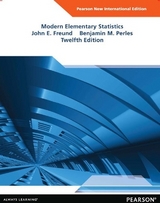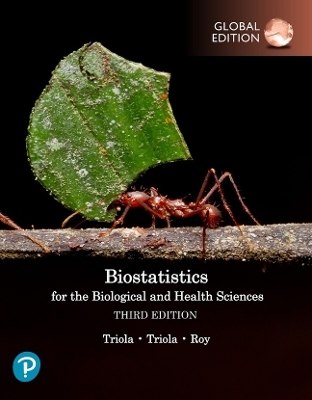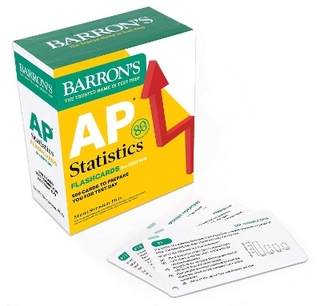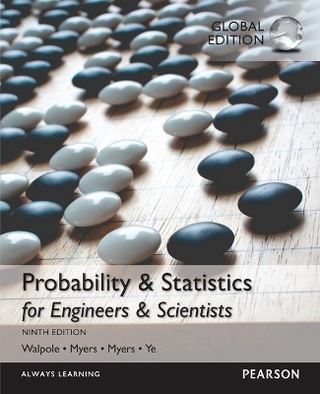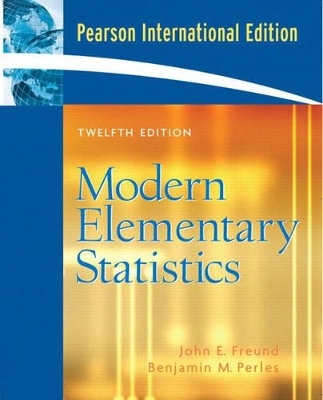
Modern Elementary Statistics
Pearson
978-0-13-174258-1 (ISBN)
- Titel erscheint in neuer Auflage
- Artikel merken
This book is intended for use in a first course in Statistics. There is a systematic academic approach in "Modern Elementary Statistics". Its emphasis is on introduction to meaningful, well-established statistical techniques. The future would be medical doctor, business executive, scientist, teacher, or other professional specialist must comprehend and be skillful in the application of baisc statistical tools and methodology. The student's knowledge is greatly enhanced by repeated exposure to statistical exercises.
Preface
Chapter 1: Introduction
1.1 The Growth of Modern Statistics
1.2 Sources of Statistical Data
1.3 The Nature of Statistical Data
Chapter 2: Summarizing Data: Listing and Grouping
2.1 Listing Numerical Data
2.2 Stem-and-Leaf Displays
2.3 Frequency Distribution
2.4 Graphical Presentations
2.5 Summarizing Two-Variable Data
Chapter 3: Summarizing Data: Measures of Location
3.1 Population and Samples
3.2 The Mean
3.3 The Weighted Mean
3.4 The Median
3.5 Other Fractiles
3.6 The Mode
3.7 The Description of Grouped Data
3.8 Technical Note (Summations)
Chapter 4: Summarizing Data: Measures of Variation
4.1 The Range
4.2 The Standard Deviation and the Variance
4.3 Applications of the Standard Deviation
4.4 The Description of Grouped Data
4.5 Some Further Descriptions
Chapter 5: Possibilities and Probabilities
5.1 Counting
5.2 Permutations
5.3 Combinations
5.4 Probability
Chapter 6: Some Rules of Probability
6.1 Samples Spaces and Events
6.2 The Postulates of Probability
6.3 Probabilities and Odds
6.4 Addition Rules
6.5 Conditional Probability
6.6 Multiplication Rules
6.7 Bayes’ Theorem
Chapter 7: Expectations and Decisions
7.1 Mathematical Expectation
7.2 Decision Making
7.3 Statistical Decision Problems
Chapter 8: Probability Distributions
8.1 Random Variables
8.2 Probability Distributions
8.3 The Binomial Distribution
8.4 The Hypergeometric Distribution
8.5 The Poisson Distribution
8.6 The Multinomial Distribution
8.7 The Mean of a Probability Distribution
8.8 The Standard Deviation of a Probability Distribution
Chapter 9: The Normal Distribution
9.1 Continuous Distributions
9.2 The Normal Distribution
9.3 A Check for Normality
9.4 Applications of the Normal Distribution
9.5 The Normal Approximation to the Binomial
Chapter 10: Sampling and Sampling Distributions
10.1 Random Sampling
10.2 Sample Designs
10.3 Systematic Sampling
10.4 Stratified Sampling
10.5 Cluster Sampling
10.6 Sampling Distributions
10.7 The Standard Error of the Mean
10.8 The Central Limit Theorem
10.9 Some Further Considerations
10.10 Technical Note (Simulation)
Chapter 11: Problems of Estimation
11.1 The Estimation of Means
11.2 The Estimation of Means
11.3 The Estimation of Standard Deviations
11.4 The Estimation of Proportions
Chapter 12: Tests of Hypotheses: Means
12.1 Tests of Hypotheses
12.2 Significance Tests
12.3 Tests Concerning Means
12.4 Tests Concerning Means ( unknown)
12.5 Differences Between Means
12.6 Differences Between Means ( unknown)
12.7 Difference Between Means (Paired data)
Chapter 13: Tests of Hypotheses: Standard Deviations
13.1 Tests Concerning Standard Deviations
13.2 Tests Concerning Two Standard Deviations
Chapter 14: Tests of Hypotheses Based on Count Data
14.1 Tests Concerning Proportions
14.2 Tests Concerning Proportions (Large Samples)
14.3 Differences Between Proportions
14.4 The Analysis of r x c Table
14.5 Goodness of Fit
Chapter 15: Analysis of Variance
15.1 Difference among k Means: An Example
15.2 The Design of Experiments: Randomization
15.3 One-Way Analysis of Variance
15.4 Multiple Comparisons
15.5 The Design of Experiments: Blocking
15.6 Two-Way Analysis of Variance
15.7 Two-Way Analysis of Variance Without Interaction
15.8 The Design of Experiments: Replication
15.9 Two-Way Analysis of Variance with Interaction
15.10 The Design of Experiments: Further Considerations
Chapter 16: Regression
16.1 Curve Fitting
16.2 The Method of Least Squares
16.3 Regression Analysis
16.4 Multiple Regression
16.5 Nonlinear Regression
Chapter 17: Correlation
17.1 The Coefficient of Correlation
17.2 The Interpretation of r
17.3 Correlation Analysis
17.4 Multiple and Partial Correlation
Chapter 18: Nonparametric Tests
18.1 The Sign Test
18.2 The Sign Test (Large Samples)
18.3 The Signed-Rank Test
18.4 The Signed-Rank Test (Large Samples)
18.5 The U Test
18.6 The U Test (Large Samples)
18.7 The H Test
18.8 Tests of Randomness: Runs
18.9 Tests of Randomness: Runs (Large Samples)
18.10 Tests of Randomness: Runs Above and Below the Median
18.11 Rank Correlation
18.12 Some Further Considerations
| Erscheint lt. Verlag | 9.3.2006 |
|---|---|
| Sprache | englisch |
| Maße | 234 x 191 mm |
| Gewicht | 902 g |
| Themenwelt | Mathematik / Informatik ► Mathematik ► Statistik |
| ISBN-10 | 0-13-174258-2 / 0131742582 |
| ISBN-13 | 978-0-13-174258-1 / 9780131742581 |
| Zustand | Neuware |
| Haben Sie eine Frage zum Produkt? |
aus dem Bereich
